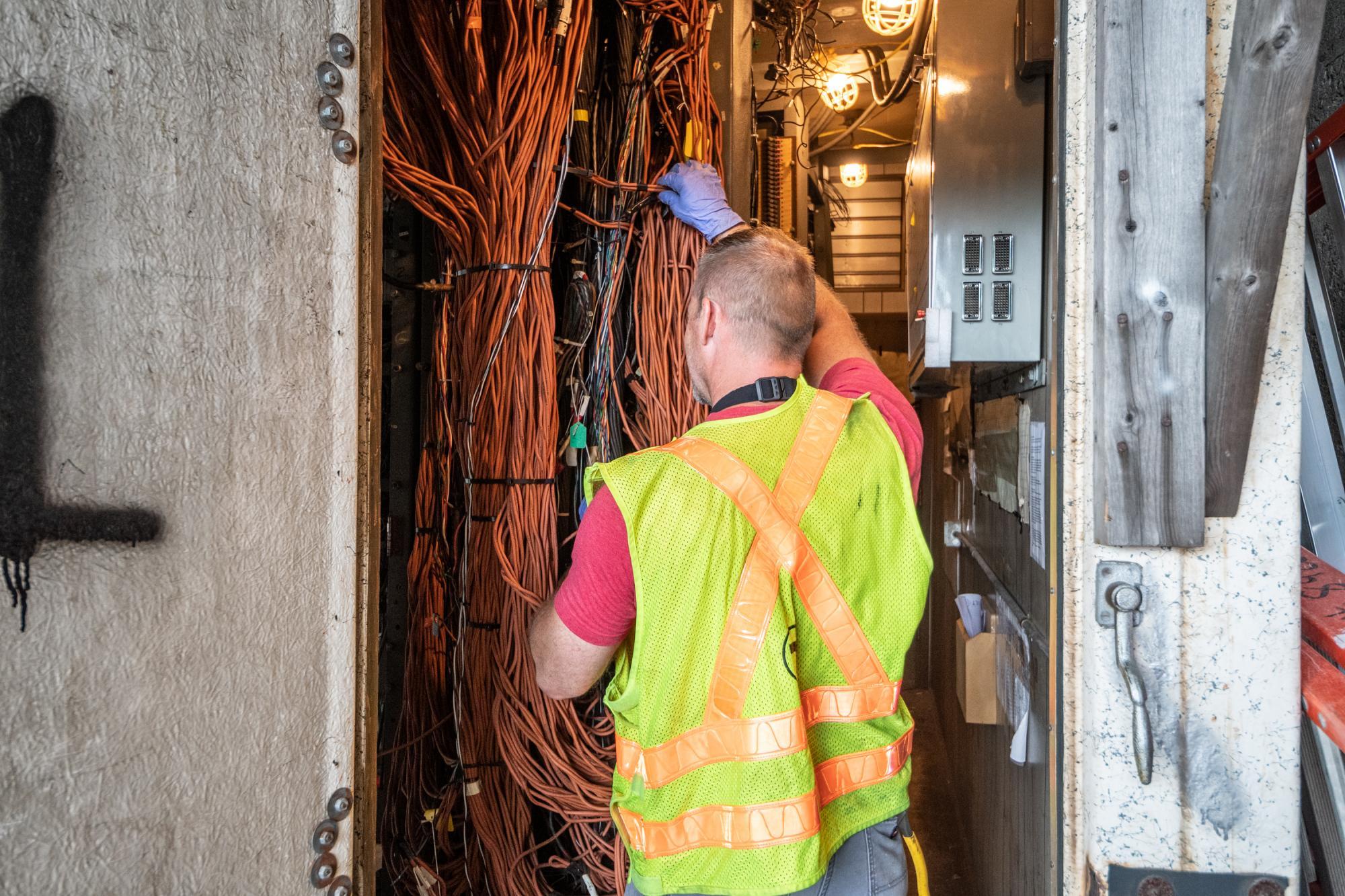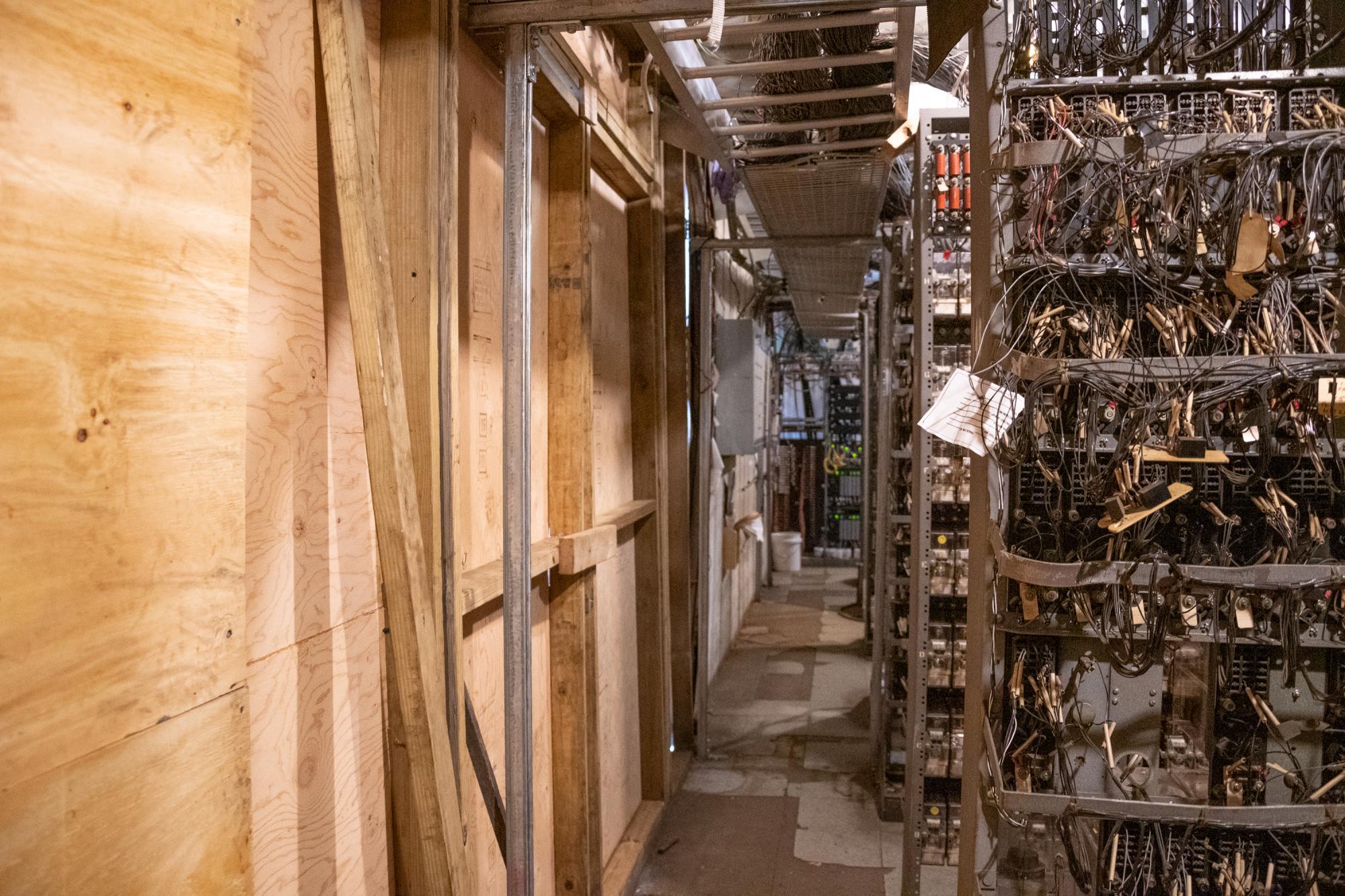Red Line Service Update: Repair Efforts Expected to Return Broadway - JFK/UMass to Normal Service by August 15
Posted on July 19, 2019
Restoration of this segment will result in improved service and time savings of roughly 5 minutes.
Efforts continue to focus on Braintree and Ashmont branches south of JFK/UMass.
Today, the MBTA announced an update on Red Line restoration efforts including:
- Targeting August 15 for signal restoration between Broadway and JFK/UMass
- Expected to result in 5 minute improvement to Red Line trips
- Currently running 10 trains per hour through Red Line core with added service during rush hour
- 3 signal bungalows repaired; new, fourth one added
- Restoration of 21 of 29 damaged signals and 11 of 19 switches
- Work will continue 7 days a week to continue progress
The MBTA expects normal Red Line service on a segment of the track between Broadway and JFK/UMass Stations to resume by August 15, 2019. This improvement is due to signal restoration that will result in increased train speeds through this area and a reduction in the time trains spend stopped at stations.
The MBTA is estimating this will result in a time savings for customers of approximately 5 minutes. Restoring the signal system through this segment is a critical milestone in the effort to return the Red Line to normal service.
The derailment of June 11 resulted in a significant increase in travel times across the entire Red Line. As an indication of the delays that were created, a trip from Braintree to South Station increased to an average of approximately 55 minutes, an average increase of 25 minutes. In the weeks that followed, restoration efforts led to a decrease in the average time of that same trip to approximately 40 minutes. Restoring the signals between Broadway and JFK/UMass is expected to decrease that trip further to approximately 35 minutes.
“We thank our customers for their patience while the work continues and regret the frustrations caused by these delays on the Red Line. We will continue repair efforts around the clock until we get back to full service along the entire line,” said MBTA General Manager Steve Poftak. “I want to thank the MBTA teams and our contractors for their ongoing efforts to make repairs, and I look forward to continued progress.”
Immediately following the derailment, the extent of the damage resulted in significant limitations to Red Line service on both the Ashmont and Braintree branches as well as the Red Line core, which extends from Alewife and JFK/UMass. In the days that followed, the Red Line ran as few as 6 trains per hour, or 1 train approximately every 10 minutes. Prior to the derailment, the MBTA ran approximately 14 trains per hour, or about one train every 4 to 5 minutes during rush hour.
In the weeks following the event, MBTA forces and contractor personnel have been working 7 days a week to make repairs to signals, communications, and power infrastructure to improve service. As a result, the MBTA is currently running 10 trains per hour through the Red Line core, or roughly 1 train every 6 minutes.
Beginning on Monday, July 15, the MBTA made additional service improvements. To alleviate crowding on trains and at station platforms, the MBTA has been strategically staging 3 additional trains that each make 1 one-way run during the height of rush hour.
Over the past several weeks, the MBTA routinely advised customers to plan for an additional 20 minutes of travel time. The T is estimating that restoring signals between Broadway and JFK will cut that time in half.
Switch and Signal Restoration
Under normal conditions, the signal system controls the speed and frequency of Red Line trains traveling in passenger service. Additionally, the system plays a vital role in coordinating the dispatching of trains through the JFK/UMass area where the Ashmont and Braintree branches merge.
Without a fully functioning signal system, Red Line trains are traveling through the affected area under a carefully coordinated manual process involving approximately 50 people in the field. The process currently in place allows trains to operate safely at 6-minute intervals while simultaneously allowing crews to continue restoration efforts.
Critical to controlling the system are 3 signal bungalows near JFK/UMass, which were severely damaged in last month's derailment. These bungalows, which have now been rebuilt, contain an extensive network of wires, relays, and computer components for 29 signals and 19 switches. In addition, a new, fourth bungalow has been constructed outside the right of way to provide additional communications and power support.
With construction of the bungalows complete, additional repair efforts have resulted in the restoration of 21 of 29 signals and 11 of 19 switches. Repairs of the remaining 8 signals and 8 switches are still underway.
Since the derailment, crews have been working to salvage, test, and assess the repair needs of over a thousand damaged electronic components and pieces of equipment in the bungalows. In addition, nearly 20 miles of signal cable were tested for connectivity and repaired as well as over 800 signal control relays, 35 track circuits, and numerous other pieces of related equipment.
MBTA and Red Line Investments
The $8 billion that the MBTA plans to spend over the next 5 years is the most in any 5-year period ever—and this funding will have tangible results and provide a more reliable ride for our customers.
The MBTA is investing nearly $2 billion in the Red and Orange Line improvement program, which will completely replace the cars, replace the signal systems, and upgrade track and maintenance facilities for both lines.
The MBTA is investing $350 million on the signal systems and $470 million for track and maintenance facility upgrades.
The MBTA is working to deliver 252 new Red Line cars and expects the first Red Line pilot car to be delivered later this summer.
The MBTA has also made a number of investments along the Red Line since 2015 including replacing third rail, replacing track, and signal work.
More Information
Media Contact Information
For all queries and comments, please contact:
Recent News on the T
April 16, 2024
April 9, 2024
April 5, 2024
April 2, 2024

